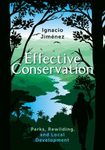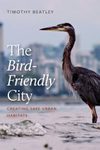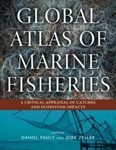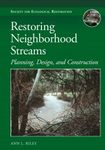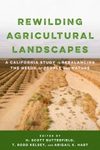About this book
How long should a leaf live? When should blueberries ripen? And what should a clever moose eat? Questions like these may seem simple or downright strange, yet they form the backbone of natural history, a discipline that fostered some of our most important scientific theories, from natural selection to glaciation.
Through careful, patient observations of the organisms that live in an area, their distributions, and how they interact with other species, we gain a more complete picture of the world around us, and our place in it. In What Should a Clever Moose Eat?, John Pastor explores the natural history of the North Woods, an immense and complex forest that stretches from the western shore of Lake Superior to the far coast of Newfoundland. The North Woods is one of the most ecologically and geologically interesting places on the planet, with a host of natural history questions arising from each spruce or sugar maple.
From the geological history of the region to the shapes of leaves and the relationship between aspens, caterpillars, and predators, Pastor delves into a captivating range of topics as diverse as the North Woods themselves. Through his meticulous observations of the natural world, scientists and non-scientists alike learn to ask natural history questions and form their own theories, gaining a greater understanding of and love for the North Woods, and other natural places precious to them.
In the tradition of Charles Darwin and Henry David Thoreau, John Pastor is a joyful observer of nature who makes sharp connections and moves deftly from observation to theory. Take a walk in John Pastor's North Woods, you'll come away with a new appreciation for details, for the game trails, beaver ponds, and patterns of growth around you, and won't look at the natural world in the same way again.
Contents
Foreword
Preface
Prologue: The Importance of Natural History
Introduction: The Nature of the North Woods
PART I: The Assembly of a Northern Ecosystem, and the Discovery of its Natural History
Chapter 1. Setting the Stage
Chapter 2. The Emergence of the North Woods
Chapter 3. The Birth and Death of a Beaver Pond
Chapter 4. David Thompson’s Canoe
PART II: Capturing the Light
Chapter 5. How Long Should a Leaf Live?
Chapter 6. The Shapes of Leaves
Chapter 7. The Shapes of Crowns
Chapter 8. How Should Leaves Die?
PART III: Foraging and Food Webs
Chapter 9. Foraging in the Beaver’s Pantry
Chapter 10. Mouse Wars, Fungi, and Spruce
Chapter 11. What Should a Clever Moose Eat?
Chapter 12. Tent Caterpillars, Aspens, and the Regulation of Ecosystems
Chapter 13. The Diversity of Warblers and the Control of Spruce Budworm
Chapter 14. The Dance of Hare and Lynx
PART IV: Pollinators, Flowers, Fruits, and Seeds
Chapter 15. Skunk Cabbages, Blowflies, and the Smells of Spring
Chapter 16. When Should Flowers Bloom and Fruits Ripen?
Chapter 17. Everybody’s Favorite Berries
Chapter 18. Coevolution of Crossbills and Conifer Cones
PART V: Fire and the Dynamics of the Landscape
Chapter 19. Does Fire Destroy or Maintain the North Woods?
Chapter 20. The Legacies of a Fire
Chapter 21. The Correlated Evolution of Serotiny, Flammability, and Fire
Epilogue: Climate Change and the Disassembly of the North Woods
Postscript: The Beauty of Natural History
Bibliography
Customer Reviews
Biography
John Pastor is an ecologist and professor of biology at the University of Minnesota, Duluth, where his teaching and research focus on the natural history and ecology of northern ecosystems. Pastor is the author of Mathematical Ecology of Populations and Ecosystems, is co-editor of Large Herbivore Ecology, Ecosystem Dynamics and Conservation, and has authored or co-authored 22 book chapters and over 120 papers, mostly about the North Woods. He is co-chair of the Natural History Section of the Ecological Society of America.
























